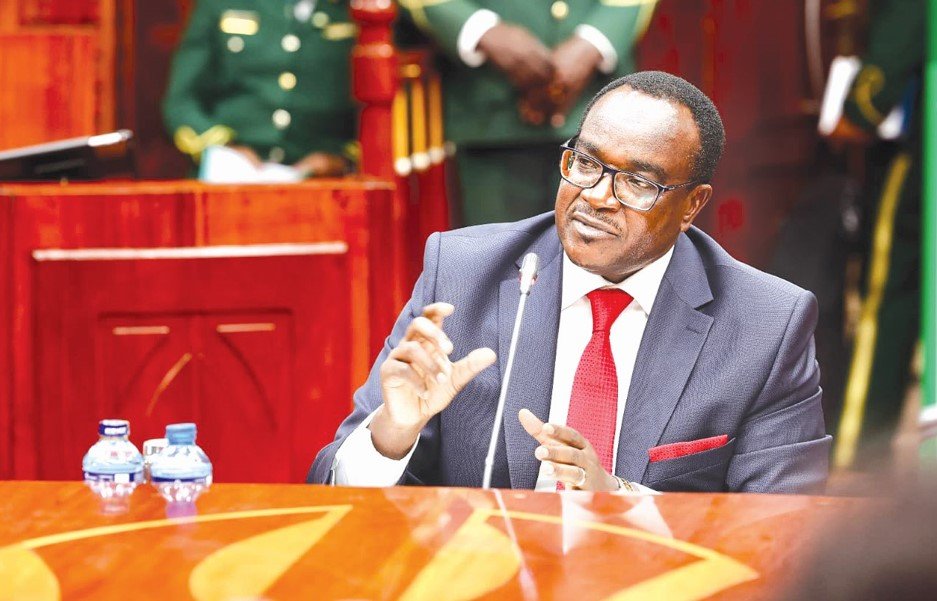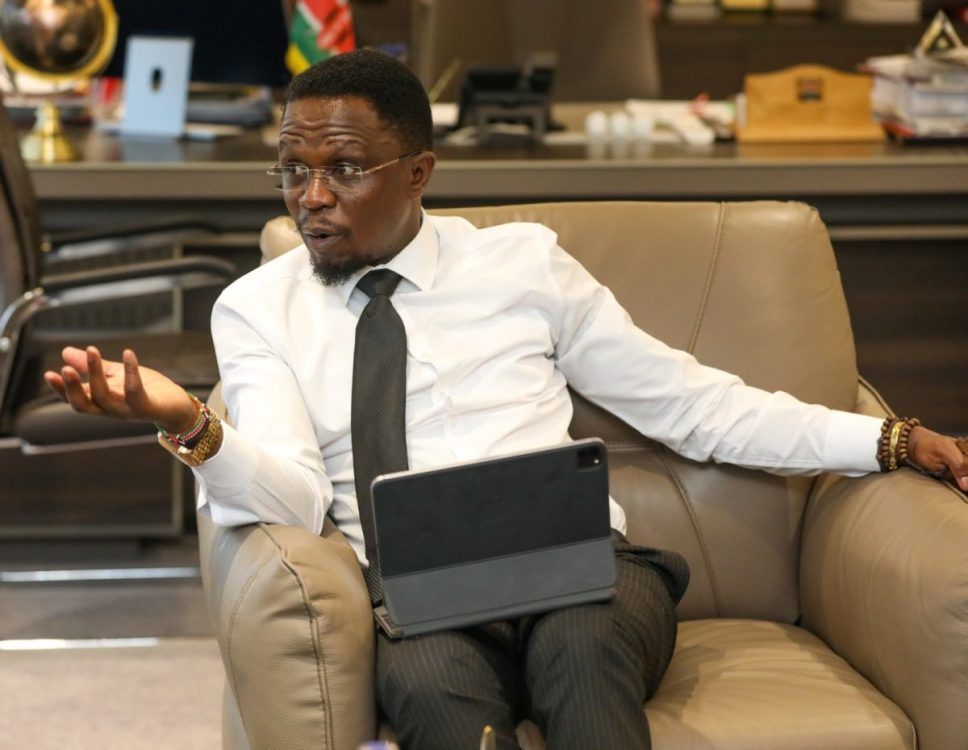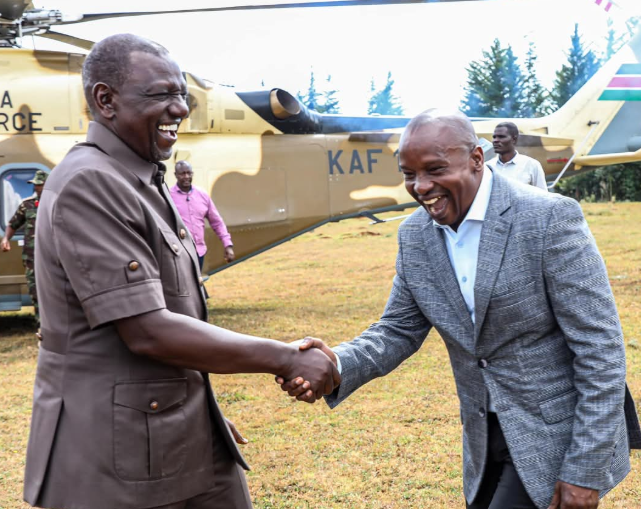No walk in the park for visually impaired artistes
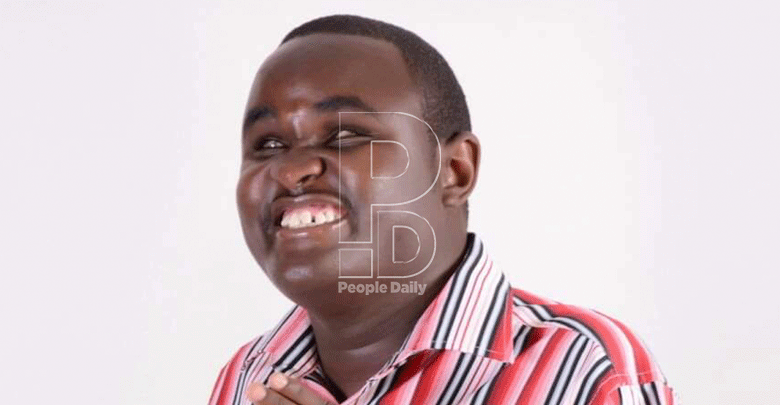
Making it in the music industry has never been a walk in the park. But it is double tragedy for the visually challenged music makers who have to deal with a myriad of challenges to even get the acceptance or recognition. Jasmine Atieno speaks to a few of such creatives who share their experiences.
With competition in the music industry getting stiff with each passing day, the opportunities for visually impaired music creators are growing even dimmer.
Only a few of them actually manage to get their way through and realise some success, and even if they realise the success, it’s still not easy for them to keep up with the daily challenges.
Known for his breakout hit collabo Mbona with Daddy Owen, gospel artiste Dennis Karanja aka Denno knows too well the pain and sacrifices a creative like him has to undergo to make it.
“At first, wanting to be a musician as a visually impaired person was really hard.
But having other musicians such as Robert Kigame to look up to was really inspiring and helpful.
However, I still did not know where to start from,” Denno tells Spice.
He adds, “After recording my first song, I did not know where to go next. Another challenge was when it came to making the videos.
Before you release them, you have to make sure that they are of good quality, and for this to happen, you have to find someone to do it for you and you have to trust their eye.
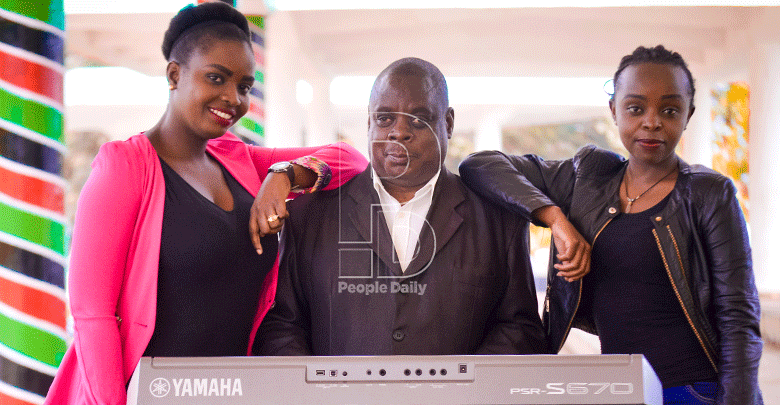
When you give the video out to TV stations things at times take a different turn; they might complain that the video is not as good as you had been made to believe.”
Duncan Mole is a visually disabled trumpeter and a member of the Afro Tambo Band.
He has been in the industry for over 17 years now. His love for music started when he was still a young boy, where he developed a natural love for the trumpet and slowly started nurturing the passion with the support of his family.
He has played together with his band in many churches and hotels at the Kenyan Coast. But the opportunities have not been easy to come by.
“Being a visually impaired musician is not easy. The discrimination is on a whole different level.
This is the one thing that I wish would change. People need to treat us equal to the other artistes.
Judge me by my ability because that is the only thing that can give me accreditation,” he intimates.
Humble beginnings
Ian Kingi is a member of the Liwazo Duo that consists of him and Biasha Ali, both blind.
Ian also owns Liwazo Studios, one of the top music recording studios in Mombasa that has birthed some of Mombasa’s top artistes including Masauti. Ian was not born blind.
He suffered a measles attack when he was four years old that resulted in loss of sight.
He went to Likoni School for the Blind where his journey in music officially began.
In 1990, together with six other persons living with disabilities, started the Sweet Wave Band that played in the hotels in Watamu.
The band unfortunately disintegrated, and in 2014, he started the Liwazo Duo.
“In all the years that I have been in the industry, and being a visually impaired artiste, the greatest challenge I’ve had is that we are not given fair opportunities.
It’s hard even for someone to give you the time to convince them that you really can do it.
Many people are like this until they experience what you can do. I actually stopped going out to look for gigs because of this.
So, I just rely on references. Maybe someone who has experienced me will put a word out for me, and if they hear of an available opportunity they always contact me. It is much easier that way,” says Ian.
Alfred Kaingu of the Coral Sound Band has been in the industry for over a decade.
A few years back, he was entertaining revellers at the White Sands Hotel in Mombasa, where the band had secured a stable gig.
But with the change in management, they got replaced with a new band and currently rely on references for anything that come his way.
As a main hustle, Alfred supplies brooms to shops in Mombasa.
“I run a broom business because I really don’t want to resort to begging. I also have no other qualifications besides music.
Just like any other artiste, we need to advertise ourselves and our abilities to clubs and other entertainment spots.
But being blind, some people instantly assume you are a beggar once you walk into the facility and just kick you out.
This is so frustrating because being blind does not necessarily mean that you are a beggar.
Well, there are a few who still listen to us, but most of them don’t listen at all,” says Kaingu.
Justus Patanane is a member of the eight-member Sweet Wave Band, all visually impaired.
The members met initially at Thika School for the Blind and after completing their studies in 1992, agreed to form the ensemble.
A well wisher donated music instruments to them and they immediately started performing at the African Safari Club chain of hotels.
Insecurity in the country led to decline of business in the tourism industry, and this, as Justus shares, impacted on their work as well.
And today, it’s been almost three years without work except for some work that still comes around the festive season.
“I have been in the music industry for over 30 years, as a singer and the band master for the Sweet Wave Band.
Our biggest challenge is that we don’t have other professional qualifications to supplement our music talent.
So, we chose music as a profession and focused on it. So, when things got miserable, it poured the misery on us.
The hotels we used to perform at don’t contact us anymore; they say it’s because of decline of business in the industry,” he shares.
Uneven playground
Bahati Akwi has been in music for more than a decade, and last year, she joined the acting industry.
She sings vernacular inspirational music while doing short series clips on her social media platforms.
Coming from the Maa community, she tries to make people understand the different tribes and how they are all related. Her challenge has been getting the platforms to perfect her craft.
“Getting a platform is definitely a challenge. I wish there was a sector in the industry that deals specifically with persons with disabilities.
When you compete with regular capable people it’s just not easy. I mean it is already hard for people who are able to do all those things.
Sometimes you walk into a club to ask for an opportunity and someone would direct you like “enda pale”.
They don’t consider the fact that you can’t even see who or where they are pointing at, and you look like a baggage if you need more help,” she tells Spice.
Eunice Kalunda is a singer with the Sweet Wave Band. She has resorted to begging to make ends meet, a situation necessitated by the bands disintegration six years ago. But she recently released two songs with Liwazoni Studio.
“We need finances in form of loans to at least buy the instruments, because depending on the streets alone is hard.
We appreciate that well wishers donate the white canes to us, but really that’s not enough.
Give us work! I remember one time we had a gig at a hotel in Mombasa and the management dismissed us before we could even perform saying that we had poor presentation, simply because we were holding hands while going on the stage, but we really can’t see, this is the only way we can make it to the stage.
“We missed the opportunity to perform just because of that. I tried joining an empowerment project for disabled people where we would make jewellery out of beads, but they removed us the visually impaired because we are slow. People just need to understand our needs,” says Eunice.
No options
There are not always many options at school for children who are visually disabled.
This also makes it easier to settle for any other available option. Tom Tembo was drawn to music while still at Likoni School for the Blind, but it is while in high school at Thika School for the Blind that he chose to venture in music as a profession. In 1981 after leaving school, he founded his band.
“Starting the band was hard. We did not have anywhere to start. We found help though from our fellow musicians, and in the recent years, the Safaricom Band has been so kind to support us by giving us a platform to showcase our talent, but the challenges are enormous.
The reception at the hotels that we majorly depend on for gigs is not always good. In fact, before you are accepted there, most people will ignore you straight up.
“But among the many who will despise you, there are others who will give you a shot, and most of the time they are surprised to see us perform just like any other capable band or musicians.
The good thing is that once they are impressed they can easily refer you for some jobs outside their space, and this goes a long way,” shares the singer, pianist and Twin Tune Band leader in conclusion.





